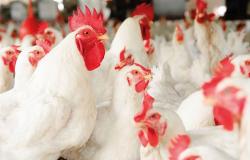The tense press conference, where the Canadian's coach, Martin St-Louis, lost his calm in the face of a question deemed provocative from Simon-Olivier Lorange, journalist at La Presse, made the rounds on the web.
@rds.ca Martin St-Louis visibly irritated when asked about Cayden Primeau ???????? #GoHabsGo ♬ original sound – RDS
This scene, which quickly made the rounds on social networks, illustrates not only the obvious frustration of the coach, but also the constant challenges that journalists and public figures face in Montreal.
Especially since St-Louis has never seen Lorange in his soup. And now once again, a question derails St-Louis
It all started when Lorange asked St-Louis if his management of the lineup, and in particular of Cayden Primeau, reflected a loss of confidence in the young goalkeeper.
This question, certainly legitimate in substance, fell like a bomb in a context where the CH is struggling to calm the controversy around Primeau and where the management of goalkeepers is already a hot topic.
St-Louis, usually measured, replied dryly:
The response, while sharp, left the room speechless and exposed another side of St. Louis: that of a coach under overwhelming pressure, trying as best he could to protect his team while managing inordinate expectations. of the Montreal market.
St-Louis' response also shed a spotlight on the role of sports journalists in Montreal.
Lorange, used to asking difficult questions, saw his name splashed across social media. While some praised his audacity, others accused him of setting a trap in St. Louis by asking a double-edged question.
“The question was bad, but the reaction from St. Louis is worse. This is not worthy of a coach. »
“The love story between Lorange and St-Louis continues… but it looks like it's going wrong! »
“If a journalist can't ask a difficult question without being humiliated, we have a problem. »
What seemed to be a spontaneous reaction from Martin St-Louis at a press conference was in reality a finely orchestrated maneuver.
By humiliating Simon-Olivier Lorange in front of his peers and live on social networks, the Canadian head coach demonstrated that he knew perfectly well what he was doing.
The journalist from La Presse, already little appreciated by the coach, became the ideal target for a St-Louis visibly at the end of patience, but also strategic in its management of criticism.
As soon as Simon-Olivier Lorange asked his question about the management of Cayden Primeau, the tension was high. St-Louis not only responded dryly, he methodically attacked the journalist in question:
This reply, far from being improvised, seemed directly aimed at Lorange, a journalist with whom St-Louis has had tense relations since the start.
Why him and not someone else? Because St-Louis knew that Lorange did not have the media capital or the allies necessary to defend him.
He would never have dared to make such a comment in the face of a “darling” journalist like Renaud Lavoie. But with Lorange, the target was easy, and St-Louis took the opportunity to send him under the bus.
The effect of the exit from St-Louis was not long in coming. Social networks, always ready to react, widely derided Lorange.
Comments multiplied, ranging from mockery of his question to personal attacks on his journalistic skills.
“With the amount of stupid questions he receives every day, it’s still nice that he doesn’t get on his nerves more often. »
“It’s not easy being a journalist in Montreal, but Lorange should have thought before asking such an awkward question. »
“It’s always the same journalist who asks these kinds of questions… No wonder he gets put in his place. »
St-Louis, by targeting a journalist already criticized on the networks, knew that he would benefit from immense support from some fans and observers.
The result? A veritable wave of negative comments towards Lorange, amplifying the public humiliation.
Why did St-Louis attack Lorange, precisely? According to several internal sources, the CH coach has never hidden his annoyance towards the journalist from La Presse.
Perceived as too critical, even impertinent, Lorange often asked questions that called into question the management of the team or the decisions of the coach.
By publicly humiliating him, St. Louis not only vented his frustration, but he also sent a clear message to all journalists: he is ready to retaliate if questions cross a line he considers disrespectful.
But this strategy is double-edged. If St-Louis has won the battle of social networks, this maneuver could also be perceived as an attempt to intimidate the media.
In a market like Montreal, where the sports press is a central pillar of hockey culture, this tension could end up backfiring.
By attacking Simon-Olivier Lorange, Martin St-Louis succeeded in his move: diverting attention from his team's problems while satisfying a personal grudge.
Lorange, already in a fragile position, suffered mockery and criticism from a public largely committed to the cause of St. Louis.
However, this exit leaves a bitter taste. By choosing to attack a journalist rather than the issue itself, St-Louis exposed a less glorious side of his leadership.
And if this coup allowed him to win a battle, it could have compromised the long-term war with a Montreal press known for never forgetting.
For Simon-Olivier Lorange, the incident represents a stark reminder of the challenges of being a sports journalist in Montreal.
Every question asked can be interpreted as an attack or an attempt to expose the flaws of an already defensive organization.
For Martin St-Louis, this release proves a growing tension towards this journalist in particular.
As the leader of a rebuilding team, he knows he is judged not only on results, but also on his ability to maintain an image of calm and control during difficult times.
In Montreal, where hockey is a religion, the pressure on coaches, players and even journalists sometimes reaches a breaking point.
The question remains: Can Martin St-Louis still maintain his calm in this unforgiving market?
And will Simon-Olivier Lorange dare to stand up or will he hide from the next question?
In any case, the message is clear: the Canadian is at a critical crossroads, and every word, every gesture, can make a difference in St. Louis.





